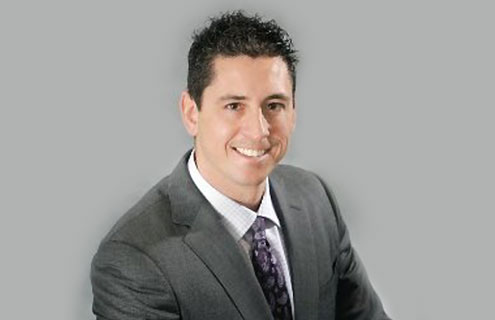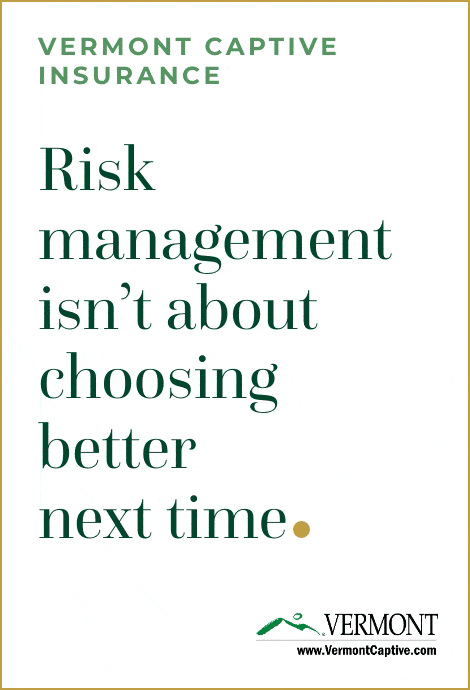MSI
Jeremy Colombik of MSI and NCCIA chair explains to Becky Butcher that Notice 2016-66 could be detrimental to not just North Carolina, but other domiciles that are home to smaller captives
What is the NCCIA focusing on in the coming months? What will the key topics for the next 12 months?
The big focus with our The North Carolina Captive Insurance Association, as well as other associations, and the industry as a whole has to be Notice 2016-66. The notice has been the biggest concern, and it will continue to be the biggest concern, in the industry.
We have a few influential politicians that our association has been in communication with on how burdensome and unnecessary this notice is to the state as well as others. We are working together with other associations in our industry to address this issue.
The association’s vice president for governmental affairs, Lane Brown, is already focused on this industry issue.
In the industry, there are a lot more small business owners than large and this notice could be a detriment, not just to North Carolina, but also to South Carolina, Tennessee, and Montana, which have a lot of smaller captives.
There are many states in the US that have small insurance companies, with at least 2,000 or 3,000 small micro captives in the industry. However, in every industry there are bad apples and we’re just trying to get those bad apples out.
With all of the coverage and scrutiny of small captives, what can their SME owners do to ensure that their arrangements stay out of the firing line?
Companies should make sure their manager is reputable and they’re working with reputable firms. If they operate as an insurance company then they will be fine. It doesn’t matter if you’re big or small.
Since the Avrahami ruling, has there been much worry at the association?
Bruce Wright said at the annual conference that the judge acted fairly and I totally agree with him. Based on the facts, he was acting fairly in the Tax Court hearing.
I don’t think as an industry we were surprised by this decision. I believe if the captive was regulated by a state, versus offshore jurisdiction, it could have triggered an audit red flag sooner with so many illiquid investments, loan backs and dividends paid to its owners.
Any properly managed captive must have and retain sufficient cash or liquid assets investments to pay claims. Again, this captive was not acting like an insurance company and should not have received insurance company benefits such as the business tax deduction for premiums paid or the 831(b) exclusion.
From taxation of the premiums paid, the tax court focused on the incompetent actuary who calculated premiums to match the exclusion amount, clearly a warning to captive managers to hire a competent actuary.
Since the implementation of the NC captive programme, the state has experienced year-on-year growth. What has made the programme such a success?
The success comes down to few factors. The first is to do with the state department of insurance’s approach of the “big state without the red tape”. North Carolina is still regulating, but they’re making it easier because they’re not over-regulating. That’s a real attraction to managers because they know the state is going to want to work with them. There is still going to be due diligence, but they also have enough support because the state is behind them, which is passing their budget and allowing the department to get the necessary staff to have a good back office.
The second avenue is the association and the state’s ‘hand- in-glove’ approach. The people in the association realise that it has a voice. The association can give the department its views on potential changes and/or adjustments with their captive programme.
Further, in North Carolina we have a diverse board in our association, which means lots of different views. We have insurance company owners, lawyers, certified public accountants and managers who provide different opinions and suggestions to the department as to where our association should stand on an issue. Unfortunately, some states don’t have what we have in North Carolina, and that’s why a lot of states haven’t flourished as well as we have. Some states tend to over-regulate, or they don’t work closely with their association.
In my role at MSI, we also have a good relationship with the department of insurance. Three years ago we were looking at multiple states, North Carolina being one of them. We are very happy we chose North Carolina as MSI re-domesticated a record-breaking number of captives to the state.
We have been very happy with the department of insurance. I work a lot with Debbie Walker, the deputy commissioner, and I think she has done a very good job in her role.
Our current insurance commissioner Mike Causey and previous commissioner Wayne Goodwin have given Walker the support that she needs to keep North Carolina flourishing with the captives and it’s a great place to domicile.
Do you think in some ways the Avrahami ruling is a good thing because it will pick out those people who aren’t acting as legitimate insurance companies?
I do actually think it’s a good thing. These people who are not operating as insurance companies will think twice about it, as this case proves the Internal Revenue Service (IRS) is on the hunt for them. Also, some captive owners may start to ask their captive managers questions based on this case to make sure they are not operating as these captives were in this case.
This means some owners may realise that their captive manager might not be operating as it should. Finally, as I previously have stated, there are bad apples in this industry just like any industry, and what our association, as well as others in the industry, does not like is how the IRS is handling items such as Notice 2016-66.





